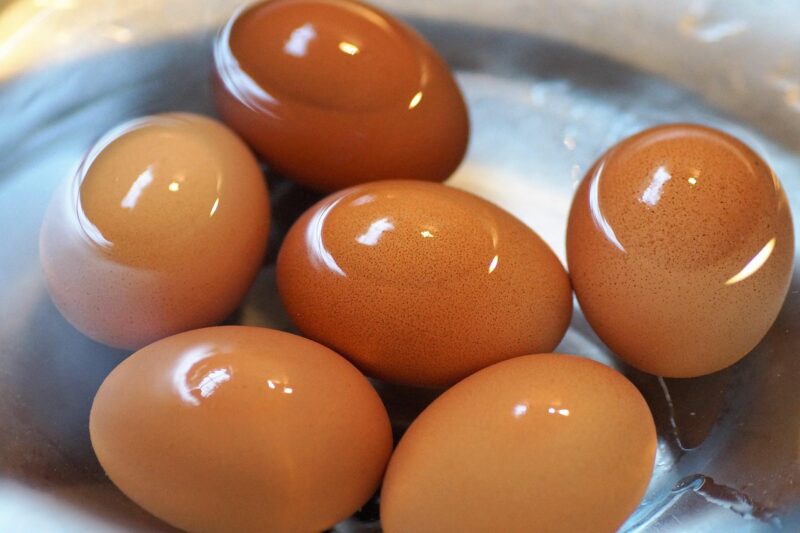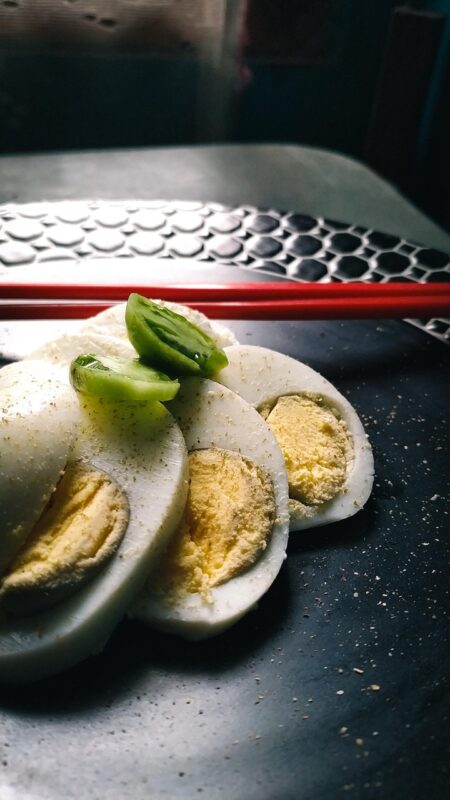In this guide, we will explore the ins and outs of freezing boiled eggs. We’ll tackle why you might consider freezing them, how to freeze them properly, tips for thawing and using them, and insights into their culinary applications. You’ll discover that not only is freezing boiled eggs possible, but it can also be a smart way to extend their shelf life.
The Basics of Boiling Eggs
Before getting into the freezing aspects, it’s essential to understand the process of boiling eggs and the benefits they offer. Boiled eggs are a great source of protein, healthy fats, and essential vitamins and minerals, making them a nutritious addition to any diet.
To boil an egg, you generally follow a straightforward method:
Choose Fresh Eggs: The fresher the egg, the better the result. Different eggs yield different textures, so pick quality eggs.
Boil Water: Place your eggs in a pot and cover them with cold water. Bring the water to a rapid boil.
Cooking Time: Once boiling, reduce the heat and cover the pot. Cooking time will depend on how you like your eggs:
Soft-boiled: 4-6 minutes
Medium-boiled: 7-9 minutes
Hard-boiled: 10-12 minutes
Ice Bath: As soon as the timer goes off, transfer the eggs to an ice bath to stop the cooking process. This helps prevent overcooking and makes peeling easier.
Why Freeze Boiled Eggs?
Freezing boiled eggs can be a game-changer for several reasons:
Meal Prep: Busy lifestyles often lead to quick eating and less time spent in meal prep. Having a stash of boiled eggs ready to go simplifies breakfast or adds protein to a salad or sandwich.
Reducing Waste: If you have leftover boiled eggs that you can’t eat before they spoil, freezing them can help eliminate waste and save you money.
Convenience: Having pre-cooked proteins on hand speeds up meal assembly. Imagine a quick salad with pre-muted yolks and firm whites; that’s both nutritious and time-efficient.
Versatile Cooking Options: Besides having them as snacks, frozen boiled eggs can be incorporated into various dishes, such as curries, soups, and pasta dishes, adding flavor and nutrients.
How to Freeze Boiled Eggs
Now that the benefits are clear, you may be wondering how to freeze boiled eggs properly. Here’s the step-by-step guide:
Step 1: Boil Your Eggs
Follow the boiling method outlined earlier. Once your eggs are boiled, allow them to cool completely.
Step 2: Peel or Leave Shells Intact
You can freeze boiled eggs with the shells on or peel them. Keep in mind that peeled boiled eggs might be easier to pack and use later. However, intact eggs maintain moisture and can withstand freezer burn better.
Step 3: Prepare for Freezing
Wrap Up: For peeled eggs, wrap each egg individually in plastic wrap or aluminum foil. This protects them from freezer burn. If you have eggs with shells, you can leave them as they are but consider placing them in a freezer-safe container to avoid any accidental cracking.
Label: It’s wise to label your container or wrapped eggs with the date and type. Using eggs within three months is best to ensure optimal taste and texture.
Step 4: Freezing
Place the wrapped or containerized eggs in your freezer. They can be stacked or placed in any freezer-safe bag.
Step 5: Thawing
When you’re ready to use your frozen boiled eggs, the process is simple:
Refrigerator Method: The best way to thaw eggs is to transfer them to the refrigerator. Let them sit for a few hours or overnight.
Cold Water Method: If you need them quicker, submerge the eggs in cold water for about 30 minutes to expeditiously thaw them.
Texture and Taste After Freezing
One of the most significant concerns when it comes to freezing boiled eggs is how their texture and taste will hold up once thawed. It’s important to know that while freezing maintains flavor, the texture might slightly change.
Unpeeled eggs tend to hold up better in the freezer. The whites might become a bit rubbery, while the yolks often remain creamy and delicious. If your goal is to use boiled eggs in recipes, the texture may not matter much, particularly when utilized in dishes like salads, sandwiches, or certain breakfast bakes.
Culinary Uses for Thawed Boiled Eggs
So, how can you utilize your thawed boiled eggs? Here’s a look at some delicious options:
1. Salads
Cut up boiled eggs add a creamy texture to salads. Consider making an egg salad with mayonnaise, mustard, and seasoning, or tossing boiled eggs into a Caesar salad for added protein.
2. Sandwiches and Wraps
The rock-solid nature of boiled eggs makes them perfect for sandwiches. You can slice them thinly and layer them on whole-grain bread with fresh veggies, or create a hearty wrap with your favorite spreads and toppings.
3. Pasta Dishes
Consider incorporating boiled eggs into pasta dishes. They make a great addition to carbonara or even mixed into a primavera dish for extra protein and richness.
4. Breakfast Bowls
For an energizing start to your day, include boiled eggs in breakfast bowls topped with avocado, cherry tomatoes, and a drizzle of your favorite dressing.
5. Curries and Soups
Boiled eggs can serve as a great protein addition to many types of curries and soups. Adding them to a coconut curry or a spicy tomato soup elevates the dish and adds substantial nutrition.
Potential Concerns When Freezing Boiled Eggs
While freezing boiled eggs is largely practical, there are a few concerns worth noting:
1. Food Safety
Be conscious of food safety practices. Always ensure the eggs are cooled properly and stored in airtight containers. Follow the “first in, first out” rule to avoid freezer burn or mold.
2. Texture Changes
As previously mentioned, the whites of frozen boiled eggs can become rubbery. This typically doesn’t impact meals where they are mixed in or blended, but it’s a consideration if you prefer eating them whole.
3. Egg Quality
The success of freezing boiled eggs can depend on the initial quality of the eggs used. Fresher eggs tend to freeze better, maintaining a better outcome once thawed.
F.A.Qs About Freezing Boiled Eggs
Can I freeze boiled eggs in their shells?
Yes, you can freeze boiled eggs in their shells, although peeling them first may be more convenient later.
How long do boiled eggs last in the freezer?
Frozen boiled eggs can last up to three months, best consumed within this timeframe for optimal taste and texture.
Can you freeze deviled eggs?
Freezing deviled eggs is not recommended, as they typically contain ingredients like mayonnaise that don’t freeze well.
Can I reheat frozen boiled eggs?
Yes, you can reheat them gently. Avoid using high heat, which could result in overcooking.
Conclusion
In summary, freezing boiled eggs opens a world of possibilities for meal prep, reduces waste, and is a convenient way to ensure you always have protein-rich food on hand. By understanding the best practices for freezing and using boiled eggs, you’ll be able to enjoy their benefits for longer.
Whether enjoyed on their own, tossed into salads, incorporated into rich pasta dishes, or elevated in numerous other culinary ways, frozen boiled eggs can be game-changers in our busy lives. By applying these tips, techniques, and insights, you’ll be able to navigate the world of boiled eggs and make the most of them, emerging as a more efficient and inspired home cook.








